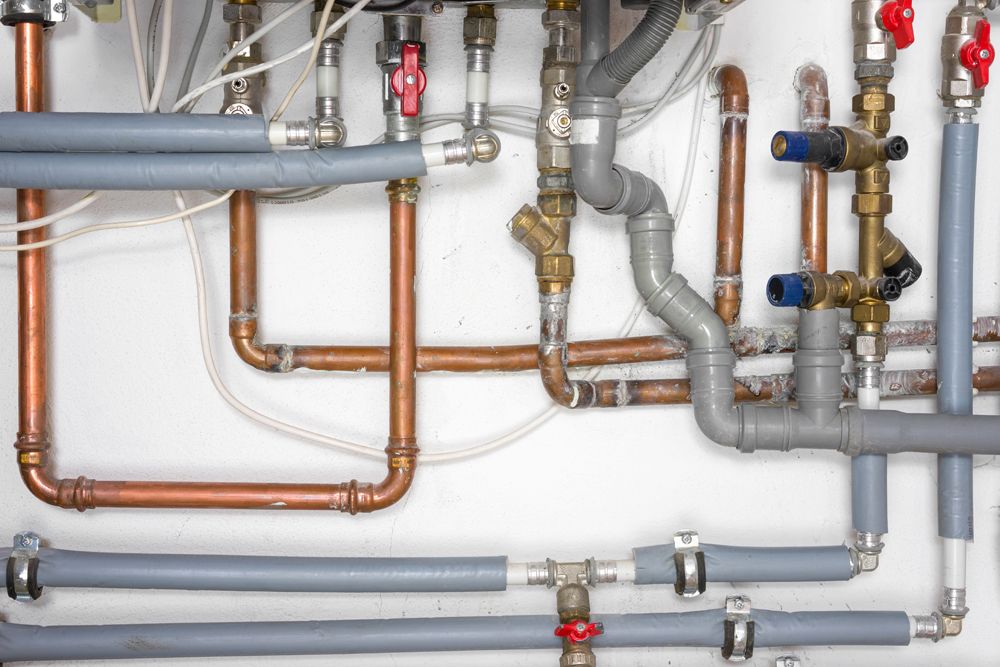
Subheading 1: The Critical Importance of Gas Line Maintenance
Gas line maintenance is a crucial aspect of ensuring the safety and functionality of your home. Gas lines are responsible for delivering natural gas to various appliances, including stoves, water heaters, and furnaces. Regular maintenance is essential to prevent leaks, ensure efficient gas flow, and safeguard your home against potential hazards.
Subheading 2: Signs that Gas Line Maintenance is Needed
Being vigilant about the signs indicating the need for gas line maintenance is essential for homeowners. Unexplained hissing sounds near gas lines, the smell of natural gas, or bubbles in the water around the gas line are clear indicators of potential issues. If you notice any of these signs, prompt action is necessary to address the problem.
Subheading 3: DIY vs. Professional Gas Line Maintenance
While some homeowners may attempt DIY maintenance, it’s important to recognize the limitations. Gas line systems are intricate, and any mishandling can lead to serious consequences. Professional gas line maintenance ensures that the job is done correctly, adhering to safety standards and regulations. It’s a proactive step toward avoiding potential hazards.
Subheading 4: Inspection and Leak Detection
Regular inspections are a fundamental part of gas line maintenance. Professionals conduct thorough inspections to identify any potential issues, including leaks, corrosion, or damaged components. Leak detection is particularly critical, as even a small gas leak can pose significant risks. Early detection allows for timely repairs and prevents safety hazards.
Subheading 5: Corrosion Prevention and Treatment
Gas lines, especially those made of metal, are susceptible to corrosion over time. Corrosion weakens the structural integrity of the lines and increases the risk of leaks. Gas line maintenance includes measures to prevent corrosion, such as applying protective coatings or replacing corroded sections. These proactive steps contribute to the overall safety of the system.
Subheading 6: Pressure Testing for System Integrity
To ensure the integrity of the gas line system, pressure testing is a common practice during maintenance. This involves pressurizing the system to identify any leaks or weaknesses. Professional technicians use specialized equipment to conduct thorough pressure tests, providing assurance that the gas line system can handle the required load safely.
Subheading 7: Valve and Joint Maintenance
Gas line maintenance extends to valves and joints, which are critical components for controlling the flow of gas. Regular lubrication, inspection, and tightening of valves and joints are essential tasks. Ensuring that these components operate smoothly contributes to the overall efficiency and safety of the gas line system.
Subheading 8: Emergency Shut-Off Procedures
Part of gas line maintenance involves educating homeowners about emergency shut-off procedures. Knowing how to turn off the gas supply in case of a leak or emergency is crucial for immediate response. Professional technicians can provide guidance on these procedures during routine maintenance visits.
Subheading 9: Upgrading and Retrofitting for Safety
As technology advances, upgrading and retrofitting gas line systems become important for enhanced safety. Older systems may lack the safety features present in modern installations. Gas line maintenance includes assessing the need for upgrades, such as installing excess flow valves or updating outdated components to meet current safety standards.
Subheading 10: Integrating Radiant Heating for Comprehensive Home Safety
As you prioritize gas line maintenance, consider exploring options for home safety and comfort at Gas line maintenance. Integrating radiant heating solutions provides an efficient and safe heating alternative. Radiant heating not only ensures a cozy home environment but complements your commitment to comprehensive home safety.
In summary, gas line maintenance is a proactive measure to ensure the safety and functionality of your home’s gas supply. Regular inspections, leak detection, corrosion prevention, and emergency preparedness are key components of an effective maintenance routine. Partnering with professionals and exploring complementary heating solutions contribute to a secure and comfortable living space.









